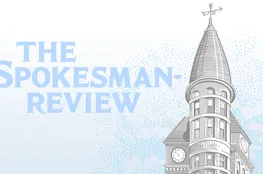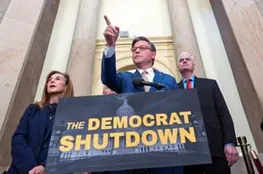The Rupert Murdoch-owned Wall Street Journal has issued a stark warning to Donald Trump, asserting that a ‘major reset’ is crucial for a successful second term. The newspaper’s editorial board contends that the execution of several of the president’s key priorities has demonstrably ‘not matched’ the promises made, urging him to ‘heed the warnings’ in an opinion piece published Monday. The board’s criticism primarily centers on Trump’s tariff policy, which they argue could ‘sink his presidency.’ Specifically, they note that Mr. Trump was elected with the mandate to control inflation and elevate real incomes, a goal directly contradicted by the imposition of tariffs. The editorial draws a historical parallel, referencing Richard Nixon’s imposition of tariffs during his second term as a cautionary example. The Journal emphasizes that the damage extends beyond domestic concerns, stating that the ‘willy-nilly assault’ on both allies and adversaries has significantly eroded global confidence in the U.S.’s reliability.
Ken Griffin, a prominent investor and major donor to Trump, recently characterized the situation as a ‘self-inflicted blow’ to the American brand, highlighting the unnecessary ceding of global economic leadership to China. The newspaper’s assessment of Trump’s tariffs positions them as a deliberate ‘gift’ to China, as U.S. allies increasingly view China as a more dependable market. This shift in perception threatens existing trade alliances aimed at countering China’s ‘often predatory economic behavior.’
While the Journal exhibits a slightly more favorable tone towards Trump’s foreign policy, describing it as a ‘work in progress,’ the president’s approach to Russia’s ongoing war against Ukraine remains a significant point of contention. The board expresses alarm regarding Trump’s rare criticisms of Vladimir Putin, particularly his pressure on Ukraine to accept concessions that could jeopardize the nation’s future. The editorial suggests that Trump’s actions risk ‘doom[ing] it to future marauding.’
Despite Trump’s adherence to more conventional Republican policy objectives during his first term, the op-ed concludes that this term, he is indulging in excessive trade and foreign-policy obessions, resulting in early negative outcomes. The board’s unwavering message is clear: ‘He’ll fail unless he heeds the warnings.’ Since taking office nearly 100 days ago, the Wall Street Journal has consistently diverged from Trump’s views on a range of issues beyond tariffs. For instance, an earlier editorial, titled “Donald Trump Tries to Run Harvard,” criticized many of Trump’s ‘unprecedented’ demands of the university, asserting that these demands exceeded his constitutional authority. This sparked a contentious battle with Harvard University, prompting Trump to freeze billions in grants and threaten the institution’s tax-exempt status. The Journal predicts a likely unfavorable outcome in court, reiterating that Trump’s actions represent an ‘intrusion on free speech.’
This ongoing struggle underscores the deep-seated tensions between the President and the influential Murdoch-owned newspaper, highlighting a fundamental disagreement over the scope of executive power and the principles of American governance. The Journal’s consistent critiques reflect a broader concern about the potential for unchecked executive authority and the destabilizig effects of unpredictable policy decisions. The newspaper’s analysis suggests a critical need for a more measured and strategic approach to both domestic and foreign policy, one that prioritizes stability, international cooperation, and a commitment to upholding established constitutional norms. The persistent warnings aim to inject a dose of realism into the Trump administration’s strategy, urging a shift away from confrontational tactics and toward a more constructive engagement with the global community.
























